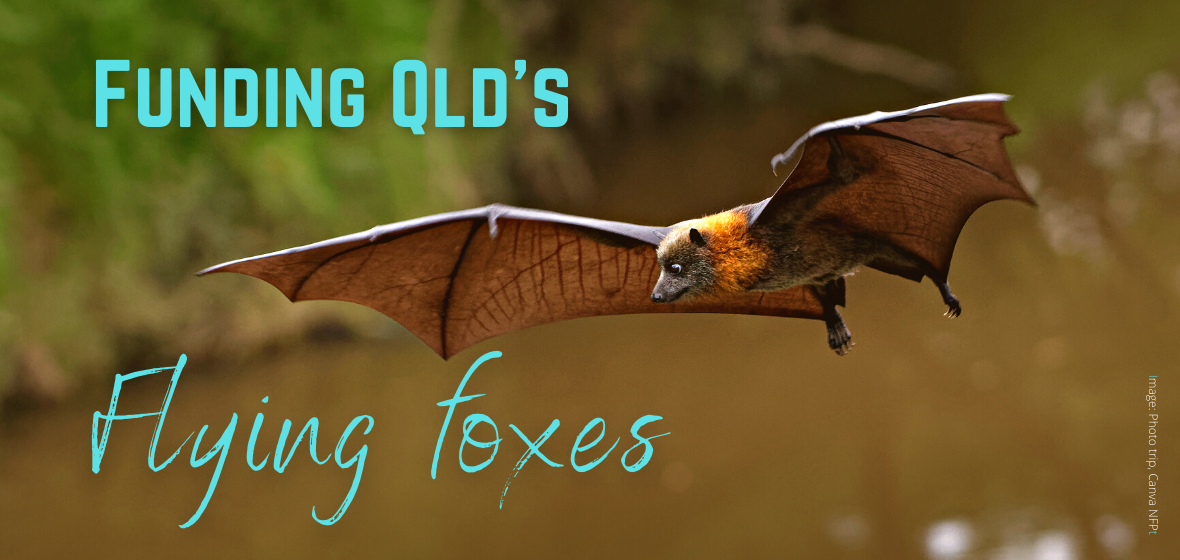
23 August 2021
Flying Fox Roost Management Grants Should Prioritise Coexistence
Wildlife Queensland welcomes the Queensland Government’s Flying-fox Roost Management Local Governments Grants Program, which makes available $2 million in grant funding for 2021–2024 to assist local governments in managing urban flying-fox colonies and creating detailed roost management plans that comply with the Nature Conservation Act 1992 (NC Act).
Where financially capable, successful local governments will co-fund 50% of the program costs (including in-kind contributions), and are eligible to apply under three funding streams:
- Stream 1: helping councils with high-priority works while longer-term arrangements are developed.
- Stream 2: assisting councils in developing long-term roost management plans to address problem roosts and generate holistic, adaptive management options
- Stream 3: helping councils implement roost management actions (as raised by management plans) that reduce the impacts of urban flying fox roosts and encourage co-existence.
Targeting Areas of Greatest Need
CSIRO research has established that anthropogenic activities have caused habitat decline resulting in detrimental impacts on all mainland species of flying fox, including the endemic grey-headed flying fox and endangered spectacled flying fox.
The Local Government Association of Queensland and the Department of Environment and Science worked cooperatively to determine where the grants would benefit both the flying foxes and the various communities.
‘It is pleasing to see different levels of government working together to develop strategies that will benefit both flying fox species and the broader community,’ says Des Boyland, Wildlife Queensland’s Policies and Campaigns Manager. ‘It was also interesting to note the purpose underpinning the various successful grant applicants was wide-ranging. The outcomes should contribute significantly to enhancing coexistence between the broader community and flying foxes.’
This initial round of funding was to target areas of the greatest need. While a broad geographic range of grant recipients has been accommodated in this initial phase of what will be a competitive six-phase funding stream over four years, Wildlife Queensland was surprised that a successful application was not achieved for the Cairns region. Controversial dispersals of spectacled flying foxes from Cairns city centre have been an ongoing threat to the species’ survival. Flying foxes have naturally low reproduction rates that, when combined with habitat loss and other threats, make forced relocation simply one more challenge for this crucial pollinating species, which is already on the brink.
‘Better strategies must be considered and explored for the spectacled flying fox and forced dispersal is not supported by Wildlife Queensland,’ adds Boyland. ‘It is hoped that outcomes and efforts from these grants don’t gather dust on some forgotten shelf, but will provide useful data that can inform urban flying fox management, educate citizens and improve the capacity of residents and flying foxes to live together peacefully.’
Learn More about Flying Foxes on our Halloween Batty Boat Cruise during Bat Week
Wildlife Queensland’s Batty Boat Cruises aim to educate the public about flying foxes to foster a greater understanding of these incredible winged mammals and the ecosystem services they provide. Sail aboard the MV Neptune up the Brisbane River to Norman Creek, home to breeding black, grey-headed and sometimes little red flying foxes. Our Halloween Batty Boat Cruise is Covid-19 compliant, so book today.
